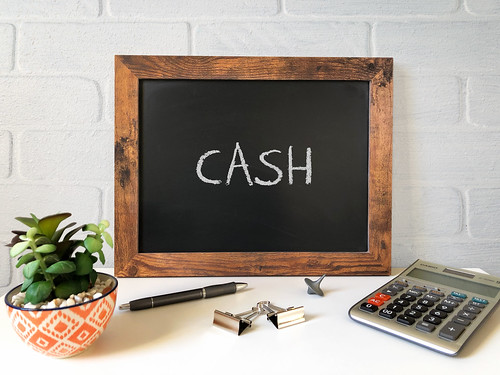Which are your top tips for creating a budget in 2022?
You can create a monthly budget plan by calculating your monthly expenses, subtracting them from your paycheck and keeping the rest for savings. You can improve your household budget by following these budgeting tips, regardless of whether you use a spreadsheet, budgeting software, or pen andpaper.
What budget items should you include?
These are 17 items you should include in your budget:
-
Grocery expenses
-
Maintenance of the House
-
House Rental or mortgage payments
-
Daily expenses
-
Debt payments (secured or unsecured)
-
Unexpected expenses and emergency fun
-
Expenses for Guests
-
Travel expenses
-
Memberships costs
-
Medical expenses
-
Insurance premiums
-
Pet Care Costs
-
Parking fees
-
Automobile Registration
-
Retirement savings fund
-
Donations for Charities
-
Entertainment costs
What is the best way to figure out the right allotments for each line?
These are some things to consider when deciding how much money you should budget for 2022.
-
It is a good idea to examine every aspect of your regular income, including your paycheck. It’s a smart idea to include any side hustles or income that you earn on a regular basis, even if they are an average or estimate. Make sure that you include income after taxes.
-
All the money you spend is included in your expenses. A separate line item should be created for each major expense. You should include all expenses, even those that are variable, in your budget. You should also consider things such as petrol and groceries or other items you regularly purchase, even though the cost is variable.
-
These items can be tracked monthly. The best way to find out where your money is going is to examine your bank and credit card statements. Each dollar spent on your cards is documented in your transactions. If you’re a frequent cash user, this may take a bit more work. To see how your money is being spent, you can view the monthly statements for each bank account.
-
A budgeting program such as Mint can be used. You may also need a budgeting application to link all your accounts and classify transactions automatically. This app is helpful for those who need some accountability or prodding when they first start.
-
If you have never created a budget before, it can be difficult to set financial goals and keep your expenses in check. It is okay to start slowly. If this is the case, you might consider setting financial goals and creating a budget. Budgets don’t have a limit. They are dynamic and change in response to income, expenses, or objectives.
-
Now is the right time to invest in savings and investment. You can set up automatic deposits into your investment accounts from many accounts. As long as your budget contains items that you want to auto-pay, you can avoid overdrafts and initiate auto-pay.
-
Other charges will also benefit from auto-pay. To ensure that you don’t miss any payments, set up auto-pay for student loans or credit cards. Your credit score and ability to borrow money will be affected if you default on your payments.
What can they do to ensure that they adhere to it throughout the year.
Consider the short-term goals that you would like to achieve in financial terms. Begin by focusing your attention on one area you want to improve, and then figure out how to make that happen. You will find that this small change becomes a routine, which will allow you to stick to your budget for longer.
Budgeting is all about aligning your spending with your values. You can track where your money is going and determine if you are making the most of your money. You’ll be able to quickly adjust your spending habits if you have to due to a life-changing event.
This is best achieved by dividing your spending into two categories: negotiable or non-negotiable. These are the expenses you cannot live without: rent, mortgage, payments on debts, groceries, retirement account contributions, savings, investments and medical costs.
Everything else can be reduced if necessary. If you fail to meet your goals, it can make you feel like a failure. Setting realistic goals, even if they seem small, will help you develop financial habits that last.
There is always the possibility of unexpected events in money. This should be a part of your financial plan to ensure you don’t get caught unprepared and that your success is not in jeopardy. An emergency fund can be a way to plan for unexpected expenses. A separate emergency fund can be used to cover any unexpected costs. This will allow you to pay unexpected costs or repair your car without incurring too much debt.
Conclusion
My top budgeting tip is to keep track your credit scores from Equifax, Experian and TransUnion. Your family should be informed about your financial situation and goals to help you all in the future. Continue to learn about budgeting and financial planning.
Published on Wed, February 9, 2022 at 13:35.56 -0600

Cash
Cash – Stock photo Credit www.gotcredit.com If you credit www.gotcredit.com, the image can be used on any website (even those with ads).
By Got Credit, January 16, 2019, 16:23:57
